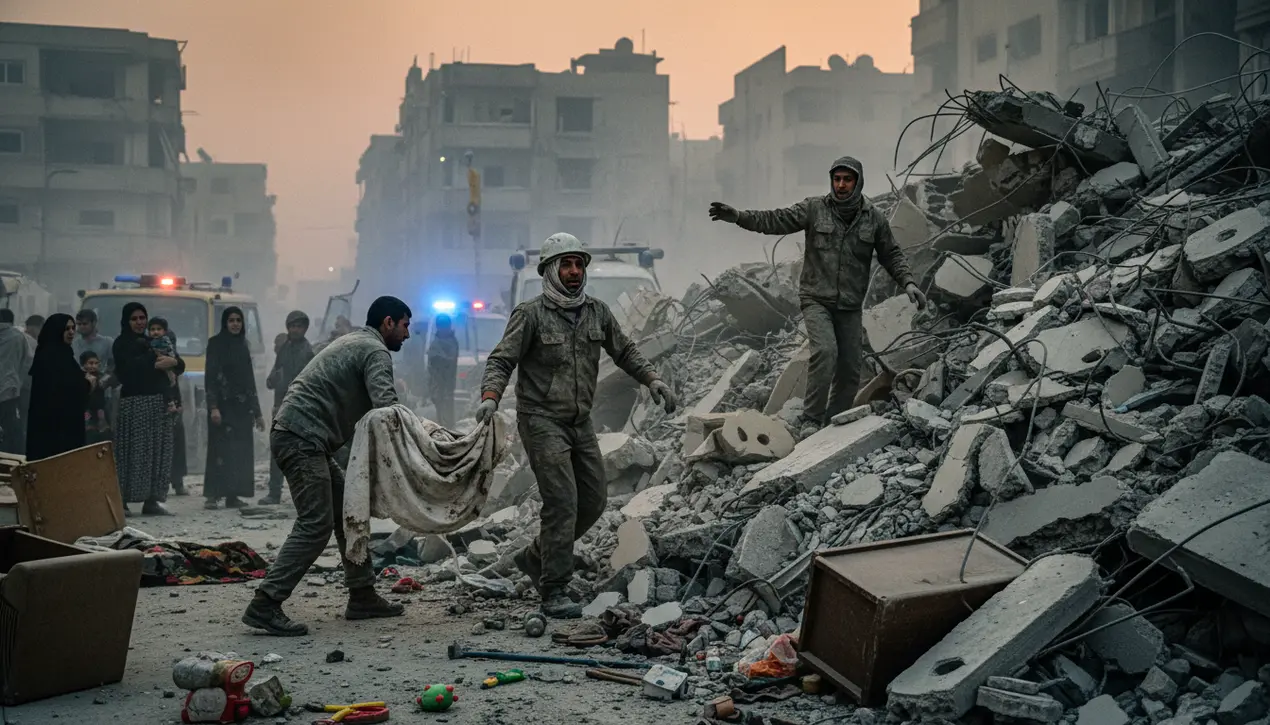
Politicsconflict & defenseMilitary Operations
Israeli Strikes in Gaza Kill 25 Palestinians, Says Health Ministry.
EM
Emma Wilson
2 days ago7 min read4 comments
The fragile quiet that had tentatively held over Gaza for five weeks was shattered today in a sudden and violent return to hostilities, with the Palestinian Health Ministry reporting that Israeli strikes have killed at least twenty-five people. This immediate and tragic escalation did not emerge from a vacuum; it was triggered, according to the Israeli military, by a specific and deliberate violation of the ceasefire.The official statement from the Israel Defense Forces was characteristically precise, stating that their aircraft had targeted several Hamas installations in direct response to gunmen opening fire on its soldiers operating within the territory. This tit-for-tat dynamic, a grimly familiar rhythm in this long-standing conflict, underscores the profound instability of any temporary truce.The ceasefire, which had offered a desperately needed respite to a civilian population grappling with catastrophic shortages of food, water, and medical supplies, now lies in tatters. The scenes emerging from the Strip are ones of renewed chaos: first responders are once again digging through the rubble of bombed-out buildings, searching for survivors amidst the dust and despair, while hospitals, which had barely begun to restock depleted supplies, are now flooded with a fresh wave of casualties, many of them women and children caught in the crossfire.This incident cannot be viewed in isolation; it is a critical data point in a rapidly deteriorating political landscape. Diplomatic efforts, led by Egypt, Qatar, and the United States, have been working tirelessly behind the scenes to broker a more permanent agreement, but today's violence deals a severe, perhaps fatal, blow to those negotiations.The attack on Israeli soldiers provides the Netanyahu government with a clear casus belli, a justification for a forceful response that will likely resonate with a domestic audience still traumatized by the October 7th attacks. Conversely, the high Palestinian death toll—a number that is not a statistic but a collection of individual lives extinguished—will be seized upon by Hamas and other militant factions as proof of Israeli intransigence and brutality, fueling the very resentment that perpetuates the cycle.Analysts are now grimly assessing the potential for a rapid, full-scale re-escalation, a return to the intense urban warfare that characterized the earlier phases of this war. The international community, including key allies of Israel like the United States, is now placed in an acutely difficult position, forced to condemn the initial ceasefire violation while also urging maximum restraint to prevent a wider conflagration.The stakes are immeasurably high; a full resumption of major combat operations would plunge Gaza into an even deeper humanitarian abyss and risks drawing in other regional actors, such as Hezbollah in Lebanon, who have been engaged in their own low-level skirmishes with Israel along the northern border. The five-week pause now seems like a fleeting illusion, a temporary halt in a tragedy that appears destined to continue its devastating course, with the people of Gaza once again paying the ultimate price for a conflict they did not start and from which they cannot escape.
#editorial picks news
#Israeli strikes
#Gaza
#ceasefire violation
#Hamas targets
#Palestinian casualties
Stay Informed. Act Smarter.
Get weekly highlights, major headlines, and expert insights — then put your knowledge to work in our live prediction markets.
Comments
Loading comments...
© 2025 Outpoll Service LTD. All rights reserved.